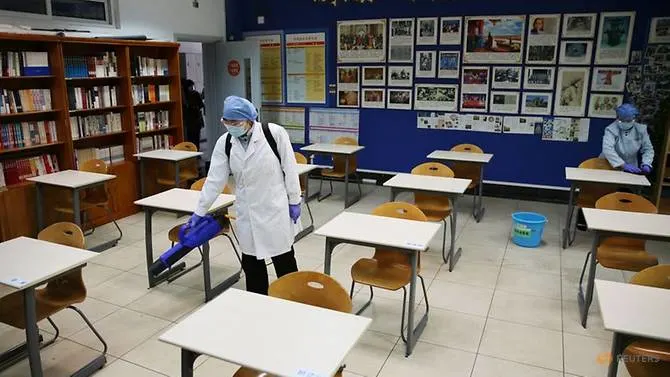China information 10 new COVID-19 cases amid concerns above accuracy of tests
23 April, 2020

China reported 10 new COVID-19 cases by the finish of Wednesday, straight down from 30 a working day earlier, even while concerns rose about the accuracy of tests.
The National Well being Commission said on Thursday (Apr 23) six of the brand new COVID-19 cases confirmed on Wednesday were imported, down from 23 a day earlier.
The quantity of new asymptomatic patients, or people who are infected but usually do not show symptoms, also declined to 27 from 42 a day earlier.
The total number of confirmed coronavirus cases for mainland China now stands at 82,798.
No new COVID-19 deaths were reported, leaving the toll unchanged at 4,632.
ISSUES WITH COVID-19 TESTS
The declining numbers come amid rising concerns over the accuracy of coronavirus tests.
One such example is trader He Ximing in Wuhan metropolis, who says he does not have any thought how or where he caught the coronavirus or as to why repeated nucleic acid tests showed he didn't own it.
He had not been a coronavirus patient, doctors told him, despite the fact that he previously been having problems breathing with what he referred to as smothering chest congestion from early February.
But his condition worried the authorities plenty of to get him delivered to a quarantine centre.
Still, he did not task the three negative checks at the time. After all, his wife didn't fall sick.
But he could not shake off the nagging suspicion that he previously the coronavirus and in late March went to a hospital in Wuhan for even more testing, including one for antibodies.
This time he tested positive.
"I didn't expect it," the 52-year-old vegetable seller said as he showed Reuters a backup of his test outcomes - great for antibodies showing contact with the coronavirus.
Finally, at least, he previously a conclusion for why he felt hence terrible. "I sensed like I was dying. You can't imagine how it feels."
Wuhan, where the innovative coronavirus emerged late last year, accounts for nearly all China's cases.
Nucleic acid testing, on samples swabbed from the back of a patient's throat or respiratory system, for the virus' genome, is the key way circumstances are detected.
The test is not simple to administer and, experts say, and mistakes do happen, such as for example if too small an example is taken or if the swab misses a virus-hit spot.
"The limitations of the tests have to be recognised, and the necessity to run regular testing if we wish assurance that someone is actually negative, and they remain thus over a period," said Andrew Preston, a lecturer in microbial pathogenesis at the University of Bath.
TESTING TIMES
There is little consensus in what proportion of nucleic acid tests yield false negatives.
A survey by Chinese doctors in February looking at samples from 213 clients suggested a false-negative fee around 30 per cent.
The media in addition has reported cases of folks testing negative repeatedly before finally getting a positive result.
In February, the People's Daily newspaper reported on a female who had fallen ill with pneumonia but tested detrimental for the coronavirus four times.
A fifth check was positive.
Source:
